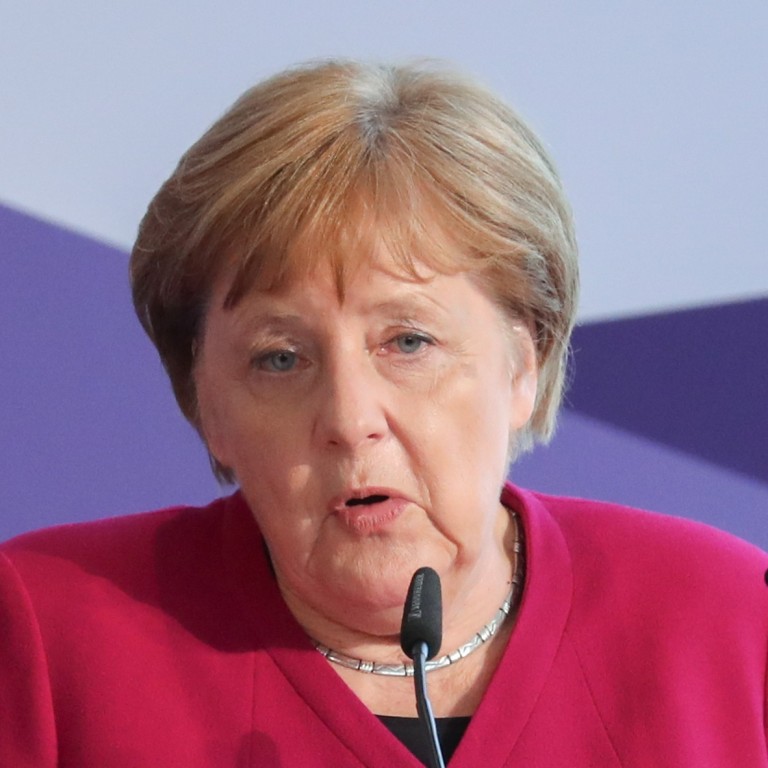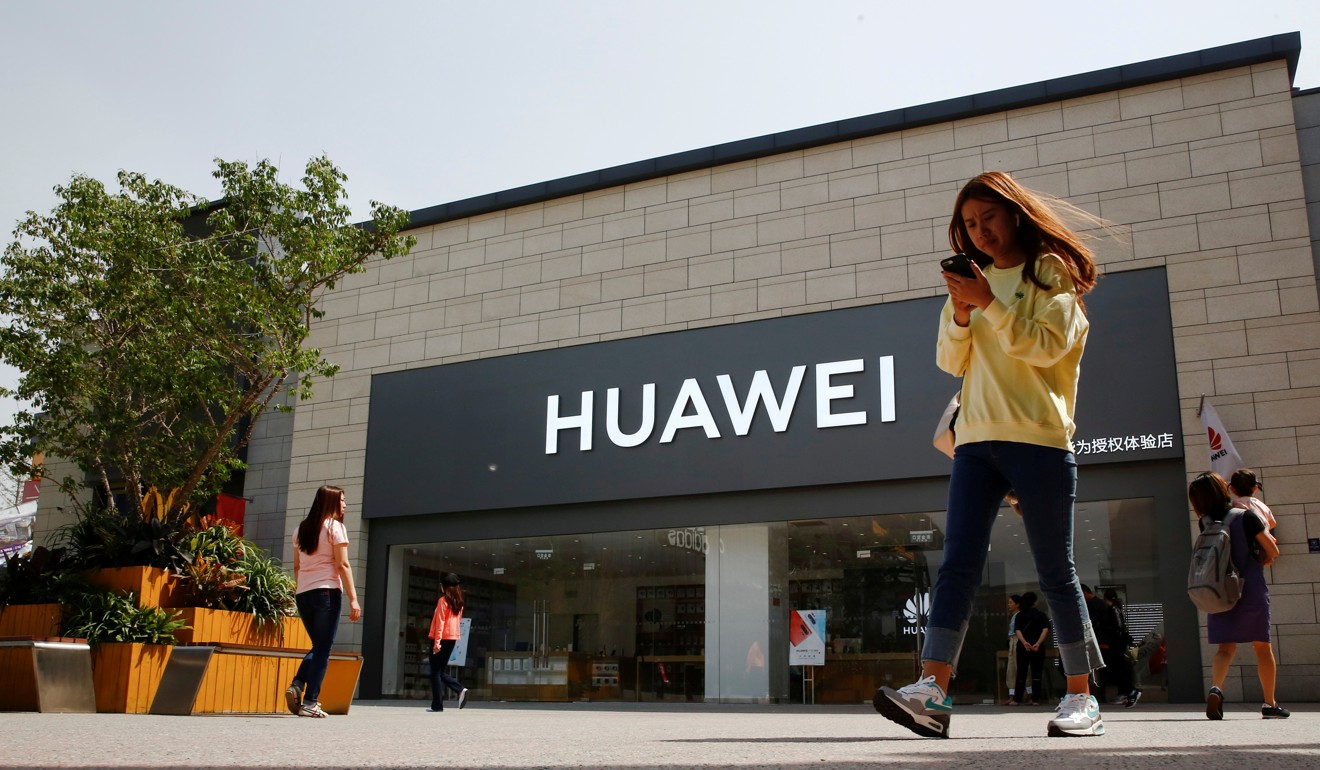
‘Europe must maintain own course’: Germany distances itself from US blacklisting of Huawei while Netherlands investigates possible spying
- Powerful BDI (Federation of German Industries) group says Europe ‘must not be dragged into trade dispute’ between China and US
- Dutch intelligence services look into potential ‘back door’ allowing access to customer data on major networks
German Chancellor Angela Merkel and the powerful BDI (Federation of German Industries) association distanced themselves on Thursday from the US government’s decision to put Chinese telecom equipment giant Huawei Technologies on a blacklist.
China has slammed the US move and threatened to take its own steps to protect its companies, in a further test of ties as the economic heavyweights clash over trade.
“Europe needs to maintain its own course,” the BDI said, adding that the European Union would decide independently which companies it would allow to build 5G network infrastructure.
“Europe must not be dragged into the trade dispute between China and the United States,” it added.
Merkel, asked during a news conference about the US decision on Huawei, said Germany would stick to its position that companies bidding in the country’s 5G auction must meet criteria set by the government.
Germany in March set tough rules for vendors supplying telecoms network equipment, but stopped short of singling out Huawei for special treatment due to concerns over its ties to the Chinese government.
The BDI urged the German government and the European Commission, the EU’s executive body, to stick to the planned auction procedure and quickly agree on joint security standards.

“German industry quickly needs legal and planning certainty in 5G expansion,” the BDI said. It called for Europe-wide coordination on security specifications, which would be independent of equipment manufacturers.
Meanwhile, Dutch intelligence services are investigating Huawei for possibly spying for the Chinese government by leaving a “back door” to data of customers of major telecoms firms, a report said on Thursday.
The probe, reported by De Volkskrant newspaper, comes at a sensitive time as the cabinet of Dutch Prime Minister Mark Rutte is due soon to decide about Huawei’s involvement in the Netherlands’ new 5G network. Dutch intelligence service AIVD refused to confirm the report.
Huawei was quoted by the newspaper as denying the report, adding: “In every country where we do business, we abide by the laws and regulations and we protect the privacy of our customers.”
The story, quoting intelligence sources, said Huawei was believed to have hidden secret access to customer information of three major Dutch networks, VodafoneZiggo, T-Mobile /Tele2 and KPN.
It added that the AIVD was now probing whether there was a link with Chinese espionage efforts.

KPN said in April that it had signed a deal with the Chinese firm to modernise its existing 4G network but that it would look to a western provider for 5G.
The Dutch debate is part of a wider battle between China and the US over trade and global influence. US President Donald Trump on Wednesday effectively barred Huawei from the American market amid fears Beijing could spy on communications and gain access to critical infrastructure.
Washington has been pressing allies to keep the Chinese firm out of mobile networks, most recently warning Britain against letting Huawei become involved in its 5G upgrade.
Reuters and Agence France-Presse
